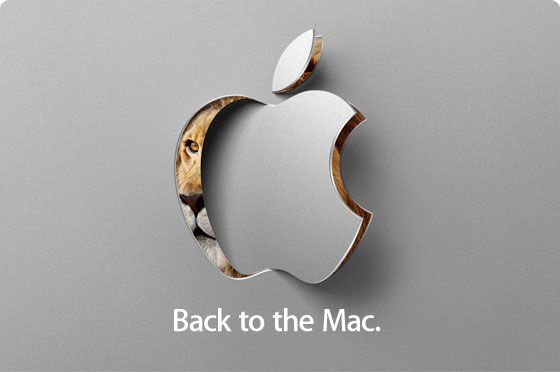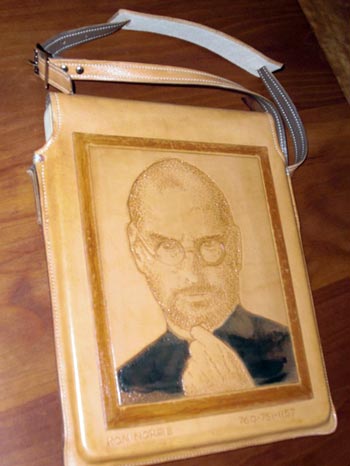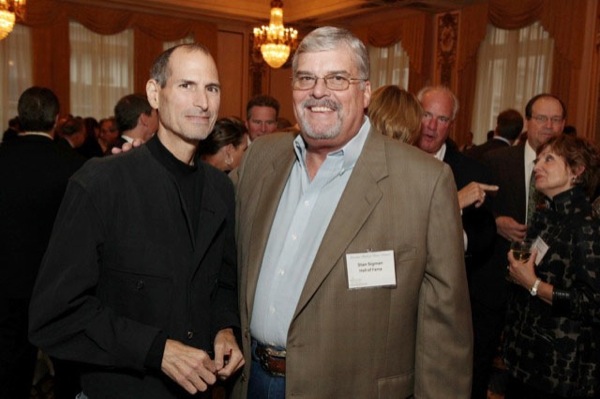John Sculley loves Steve Jobs
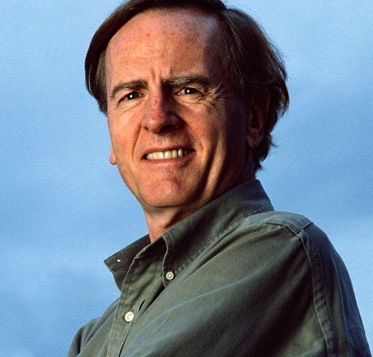
John Sculley met with Cult of Mac chief editor Leander Kahney for an extensive interview about his tenure at Apple and his views on Steve Jobs.
John Sculley on Steve Jobs, the full interview
If you have time, I suggest you read it. But I wouldn’t go as far as John Gruber and call it “fascinating”. For one I didn’t learn anything, apart from a couple of anecdotes. But most importantly, it confirms what I thought of John Sculley. He is a bitter old man who regrets what he’s done to Apple and Steve. The lengths to which he goes to show how much he loves Steve are so great it’s ridiculous. Examples:
It’s okay to be driven a little crazy by someone who is so consistently right.
I don’t take any credit for it. What Steve’s brilliance is, is his ability to see something and then understand it and then figure out how to put into the context of his design methodology — everything is design.
All the design ideas were clearly Steve’s. The one who should really be given credit for all that stuff while I was there is really Steve.
The there’s the part where he sounds like an ex lover:
Q: People say he killed the Newton – your pet project – out of revenge. Do you think he did it for revenge?
Sculley: Probably. He won’t talk to me, so I don’t know.
Same goes for the Bloomberg interview where he speaks of Steve seducing him to make him come to Apple: “He had dark, long hair at this time”… All of this reminded me of this old Fake Steve post, which, once more, though intended as hilarious, is in fact quite realistic.
The one point I did find interesting in the Kahney interview was how he describes how power was distributed at Apple:
Remember, he was the chairman of the board, the largest shareholder and he ran the Macintosh division, so he was above me and below me. It was a little bit of a façade and my guess is that we never would have had the breakup if the board had done a better job of thinking through not just how do we get a CEO to come and join the company that Steve will approve of, but how do we make sure that we create a situation where this thing is going to be successful over time?
I had never thought of it before. Mainly because Steve being “chairman of the board” was just a title for PR, and did not reflect his true role at Apple. Otherwise, Jobs could have imposed himself as a CEO. And I never knew he was still the largest shareholder either. Anyway, I totally disagree on his idea that Steve shouldn’t have been fired, because as I’ve stated before it is probably the best thing that ever happened to him — we wouldn’t have Pixar otherwise.
Finally, here’s an anecdote I found funny:
Sometimes… he was wrong tactically on a number of things. He wouldn’t put a hard drive in the Macintosh. When someone asked him about communications, he just threw a little disk across the room and said, “That’s all we’ll ever need.”
It’s the only part where John Sculley admits Steve can be wrong once in a while…
About that Bloomberg TV special
Here’s the full video of the Bloomberg TV special on Steve Jobs: Full video
While I was looking at the titles, I thought: OH SHIT! I know this stuff!!! I know what this is.
Indeed, in December 2009, I was contacted by a guy named Ruth O’Neill who said to me:
I’m a researcher on a new documentary series for Bloomberg Television. “GAMECHANGERS” (working title) is a half hour documentary program that explores the complex careers of the executives and thought leaders who have defined the world of technology, finance, politics and culture.
Well, I never thought it took so long to make a TV documentary. Almost a year! I thought the project had been abandoned. I helped Ruth on finding pictures of Steve and he said he loved the site (yes he did say it). How do you know it’s true? Well have a look at the yearbook photo used in the documentary. It’s got the exact same noise as the one on the website. It’s because i’s where it’s from! I know it because I scanned it myself from the book The Journey Is the Reward. That’s right, a picture I scanned from a book ended up on national television! 🙂
Seriously, I think the documentary picked the best people to talk about Steve Jobs, namely: Robert X Cringely (who did Triumph of the Nerds), Michael Moritz, Alan Deutschman (I love The Second Coming of Steve Jobs) and Leander Kahney (although he did make one mistake saying Steve was living in his Woodside mansion “developing the Mac” – he bought it in November 1984, 10 months after the Mac was launched). These are exactly the same people I would have chosen, and their books are all well rated on all about Steve Jobs’ sources/bibliography page. I don’t know if this is related to Ruth, but since he repeatedly said he loved the site, I’d like to think it is.
China pirating Steve Jobs
Looks like China cannot limit itself to counterfeited iPods and iPhone. The iLeader has to be copied too: Chinese (fake) Steve Jobs.
Via Gizmodo.
D-7 before Steve takes the stage again
Can’t wait.
One-hour TV special about Steve on Bloomberg
I don’t live in the US and I don’t get Bloomberg, so I’m not overly concerned by this, but AppleInsider reports that Bloomberg will broadcast a one-hour TV special on Steve tomorrow.
Money quote:
In an email to AppleInsider, Bloomberg said the special will trace Jobs from his start-up years in the family garage to his recent transplant surgery and release of the revolutionary iPad, examining his early success and subsequent exile from Apple, his failure at NeXT, his redemption at Pixar and his triumphant return to the company he created.
I’m honestly curious how they’re gonna do that without the usual 20 seconds on NeXT (i.e. 12 years of Steve’s life). We’ll see… when it shows up on YouTube 🙂 I, for one, have always thought that Steve deserved at least a Hollywood trilogy, maybe even more.
Steve emails on Meizu
Steve is back with an email to delight us all.
This one is about a Chinese consumer electronics brand, Meizu, which has specialized in making copycat replica of several Apple products. Their new M8 phone steals from the iPhone 4. On a forum dedicated to the Meizu company, reader Elliot from the UK explains the exchange he’s had with Apple’s CEO:
I have heard that you are taking action against the Chinese electronics manufacture Meizu and you have successfully managed to stop the manufacture of the Meizu M8. I would like to know why your company has decided to take action against Meizu when there are many phones out there which are designed to be clones of your iPhone. I am quite fond of the Meizu M8 and your iPhone, i own an M8 and an iPhone 3GS but i do not see many purposely placed similarities on the M8.
Steve’s supposed reply:
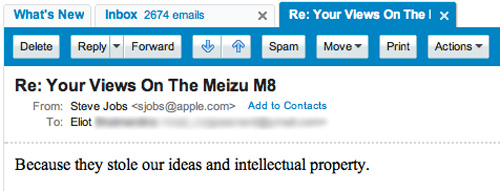
Sounds legit; that’s pure SJ style.
More stuff with Steve Jobs on them
There’s so much stuff bearing Steve Jobs on them these days that I’m thinking about launching my own online store. The new ones this week are:
A “psychedelic” portrait based on the 1984 red-tie-and-red-apple picture
and
A weird leather iPad case based on the 2006 hand-on-bearded-chin picture.
Steve, a star for today’s teenagers
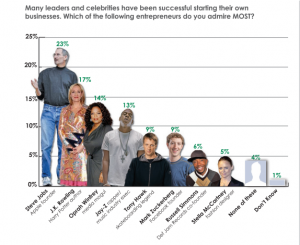 TechCrunch reports the results of a survey by Junior Achievement about entrepreneurs.
TechCrunch reports the results of a survey by Junior Achievement about entrepreneurs.
Junior Achievement surveyed 1,000 teens in the United States by telephone to get an idea of which entrepreneurs they admire most. Nearly a quarter of respondents named Jobs as the most admired entrepreneur, albeit down from 35% in the 2009 survey.
Even with Facebook at more than half a billion users, and the movie The Social Network taking the world by storm, Mark Zuckerberg only received 9% of votes for most admired entrepreneur, tying with skateboarding legend Tony Hawk.
Although it’s obvious to almost everybody, I’m still stunned by how mainstream Apple and Steve have become. The same thought came to my mind a couple of days ago. I was sitting at Starbucks in Paris, enjoying my morning latte. Next to me was a group of 5 teenage boys (probably in high school) They were talking about a parody of Steve Jobs that was broadcast on the most famous French satirical TV show (it’s a puppet show) last week. The piece showed Steve selling common objects by just putting an i in front of their name.
One of the boys said: “They’r exaggerating. We don’t buy anything Apple makes. It’s just that they make great stuff…”. He was identifying himself as part of that crowd ready to buy anything Apple. When I was their age, I was the only one in junior high who even knew the name of more than one Apple product. The PC was the norm and Macs were seen as expensive, weird-looking computers that were too slow and had no software. As for Steve Jobs, no one knew who he was – they only knew Bill Gates. I’m talking about 2000-2002 here.
Wow. Things really change fast in this world. I wonder what people will say of Apple and Steve ten years from today.
Steve Jobs makes two public appearances
The old time where Steve Jobs would make public appearances several times a month are back!!! Yippie yeah!
Yesterday (October 5), he appeared twice in public: in the morning, at the Lucile Packard Children’s Hospital in Palo Alto, attending the ceremony for the creation of the nation’s first living donor registry for kidney transplants. And in the evening again, at the AT&T Wireless Hall of Fame, where Stan Sigman was inducted. He was CEO of AT&T when Steve introduced the first iPhone.
It’s interesting to see how Steve seems to embrace this cause of organ donations. He was known for not giving to any charity before that near-death experience happened to him.
As a side note, I have to get used to journalists/bloggers doing a bad job and never checking their sources. I have seen on several news sites, including mainstream ones, pictures of his speech from last March mixed up with this story in a very confusing way.
Has NeXT changed Steve Jobs?
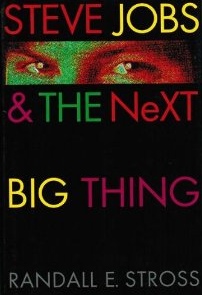 Randall E Stross wrote an article three days ago in the New York Times, that you hear a good deal about in most of the Apple blogosphere. Its title: “What Steve Jobs learned in the Wilderness“. I’ll add my two cents worth, as usual.
Randall E Stross wrote an article three days ago in the New York Times, that you hear a good deal about in most of the Apple blogosphere. Its title: “What Steve Jobs learned in the Wilderness“. I’ll add my two cents worth, as usual.
First, a word on Randall. The guy knows what he’s talking about, since, as he points out in the article, he wrote Steve Jobs and the NeXT Big Thing over 15 years ago. I read the book some time ago and liked it a lot. It’s a great resource on the obscure NeXT period (one I love, as you know or will soon know if you keep coming back to this blog). What Mr. Stross doesn’t brag about, understandingly, is that his main point in the book was that Steve Jobs was basically a fluke with no management skills and vision on the industry whatsoever. He thought that not only NeXT but also Pixar, where his wife worked, both proved it. Hmm.
Now about the article itself. Quite frankly, I have mixed feelings about it. It’s true that Steve was kind of humbled by his failure at NeXT. But, unlike what the article says, I don’t believe that this newfound humbleness has remained with him all these years. I agree more with Alan Deutschman’s theory in The Second Coming of Steve Jobs that once success came back, Steve Jobs’ “mellowness” was quick to disappear. I especially disagree with Randall Stross’ statement:
In this period, Mr. Jobs did not do much delegating. Almost every aspect of the machine — including the finish on interior screws — was his domain. (…) Mr. Jobs had learned from Next not to try to do everything himself.
This shows quite a lack of understanding of how Apple is run. Last time I checked, Steve delayed the launch of the iPad until he could find the appropriate word to describe it (namely, “magical”), chooses the music that’s used in every Apple commercial — and, yes, still cares a great deal about screws. Just listen to the keynotes or promotional videos for the iPhone or the Macbook Pro, how they insist on the number of screws (or the lack thereof) in the machines, with the very same words that were used by Steve when he launched the NeXT Station… in 1991.
As I’ve pointed out before, the main difference between Steve’s failures in the 1990s and his successes in the 2000s is not Steve himself. It’s… LUCK. And a market finally ready for his vision.
